Fermented foods are all the rage these days thanks to their amazing health benefits, particularly for gut health. It may take a tasting or two to get used to fermented products, but there are many deliciously tasty options worth adding to your daily diet routine. That got us wondering which fermented foods and drinks were the consensus best options for foodies of the 21st century.
What does fermented mean? Well, it’s a process. According to Healthline, the fermentation process breaks down sugars in food and drinks, thanks to bacteria and yeast. This results in enhanced preservation (think cucumbers becoming long-lasting jarred pickles) and a boost of beneficial bacteria, aka probiotics, in your gut. We’ve got a gut feeling that’s a good thing, but let’s see what the research says.
According to a study at Stanford University, eating fermented foods like yogurt helped tackle arthritis, type 2 diabetes and even stress. And that’s not all. Researchers at the University of Eastern Finland found that fermented dairy products may lower the risk of incident coronary heart disease in men, which is surprising because a very high consumption rate of non-fermented dairy products could increase a man’s risk for heart disease.
Having a healthy gut microbiome — the community of microorganisms that live in the GI tract — is important for overall health. That’s because trillions of microbes help fight off a host of life-threatening conditions, digest food and control the immune system. When you come to think of it, consuming fermented foods and drinks is the easiest part … your body does the rest of the hard work.
So, which are the best fermented foods and drinks for your body? We searched 10 expert websites for the answers and compiled the following list of the five most recommended fermented foods or drinks, according to nutrition and dietary experts. Read on for the reveal of fermented favorites! And make sure to let us know what you think in the comments.
The List: Best Fermented Foods & Drinks, According To Experts
1. Kefir
Heard of kefir? “Kefir is a fermented milk product (made from cow, goat or sheep’s milk) that tastes like a drinkable yogurt … benefits include providing high levels of vitamin B12, calcium, magnesium, vitamin K2, biotin, folate, enzymes and probiotics. Kefir has been consumed for well over 3,000 years,” Dr. Axe writes.
But how do you consume it?
“You can drink kefir on its own or use it in place of buttermilk, milk, or water in dishes for a nice sour flavor. Thick kefir is similar in consistency to yogurt. You can eat it in the same way, for example, as a breakfast or dessert. Kefir has an abundance of diverse microbes, and evidence suggests that it could benefit your health in many ways. Kefir is also a good source of many important vitamins and minerals,” according to ZOE.
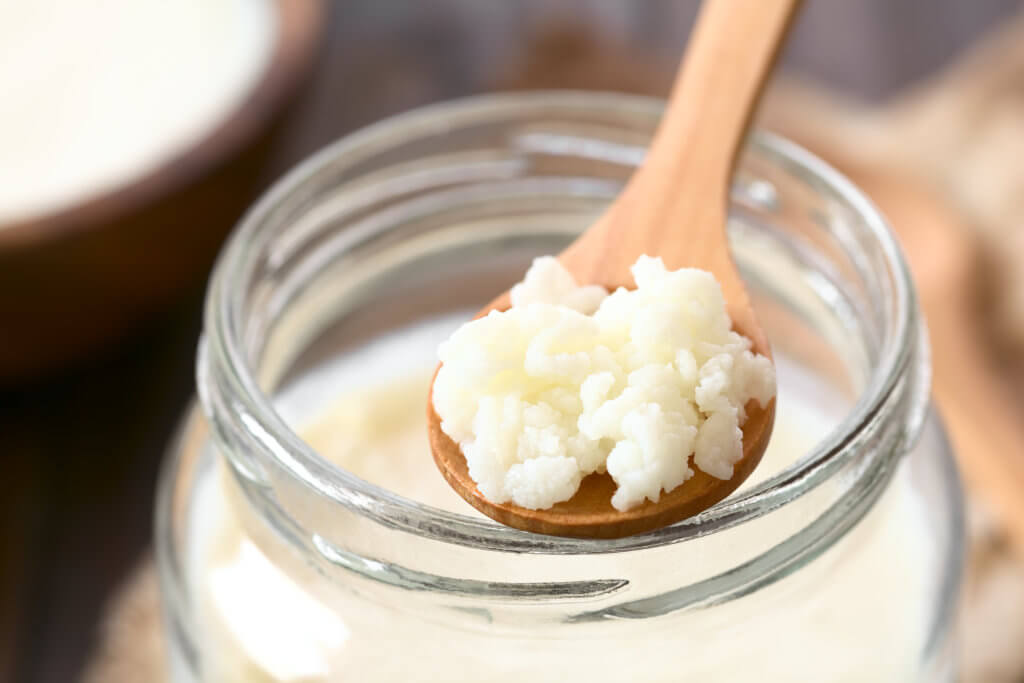
2. Kombucha
You’ve most likely seen bottles of this in the grocery store, but it’s been around for thousands of years.
“Kombucha boasts an extremely high amount of probiotics — up to six billion probiotic organisms per 16 ounces. This healthy beverage is made from a mixture of green and black teas that is fermented with the help of a SCOBY (short for symbiotic colony of bacteria and yeast). That means it’s also high in antioxidants that fight off free radicals,” Women’s Health says.
Mindbodygreen ranks Kombucha as one of the healthiest fermented products. Here’s why: “Kombucha, which is made from a SCOBY (symbiotic colony of bacteria and yeast) mixed with sweetened black or green tea, has been around for more than 2,000 years — and for good reason. During kombucha’s fermentation process, the SCOBY eats away at the sugars in the tea mixture, producing natural organic acids, B vitamins, and probiotic bacteria as a result.”
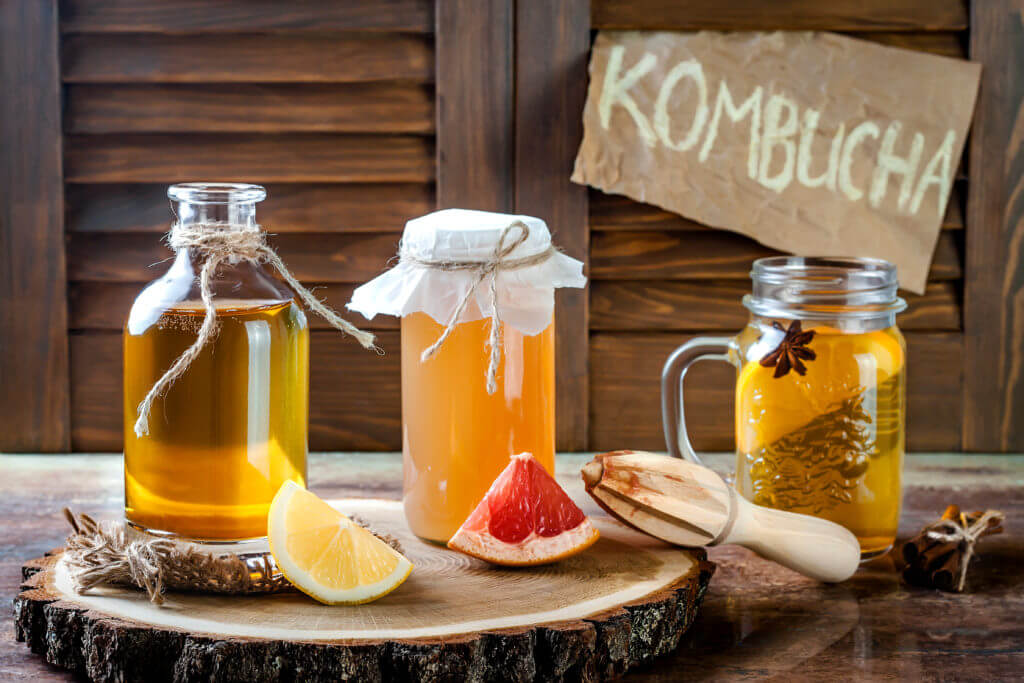
3. Sauerkraut
The hot dog topping?
Real Simple says, “Most people are introduced to this German superfood at a summer BBQ as a hot dog topping. What you might not realize is that naturally fermented kraut, which is essentially just cabbage in a saltwater brine, is chock-full of gut-friendly probiotics, fiber, and vitamins.”
And Eating Well writes, “Sauerkraut is good for more than just topping a hot dog. Made from just cabbage and salt, this fermented food delivers a healthy dose of probiotics and fiber. A 2018 study in Foods found that sauerkraut’s microbiome (the colonies of bacteria) grows rapidly during the fermentation process and stays stable during packaging for commercial sale. The kind sold in the refrigerated section will have more probiotics than shelf-stable canned or jarred varieties.”
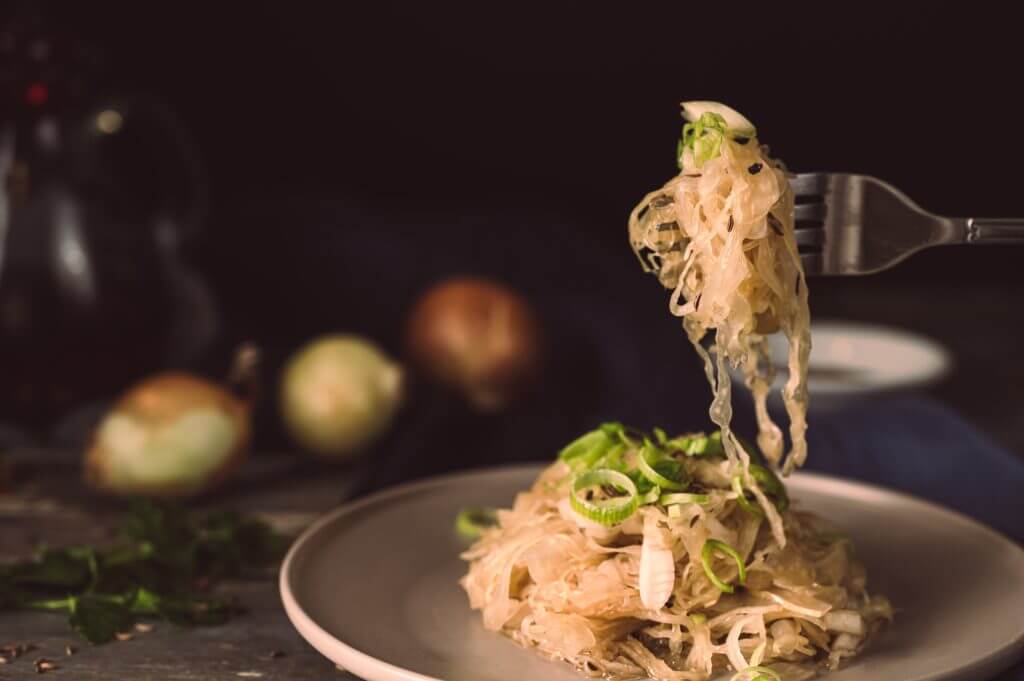
4. Kimchi
If you’ve eaten Korean food, you might have seen this on the menu.
“Kimchi, a staple in Korean cuisine, consists of salted and fermented vegetables prepared with a variety of seasonings. Kimchi packs more than beneficial bacteria, 1 cup (150 g) of kimchi also contains vitamins and minerals, such as magnesium, potassium, vitamin A, K, and riboflavin,” according to Trifecta Nutrition.
Rachel Graham talks about how long it’s been around and why it’s beneficial: “Kimchi is a Korean delicacy that dates back to the 7th century. It is a spicier version of sauerkraut. It is typically made with Chinese leaves, garlic, ginger and chilies. These add potent anti-inflammatory properties as well as antioxidants to the probiotic benefits. It can be added to stir-fries and ramen bowls for a strong flavour boost.” \
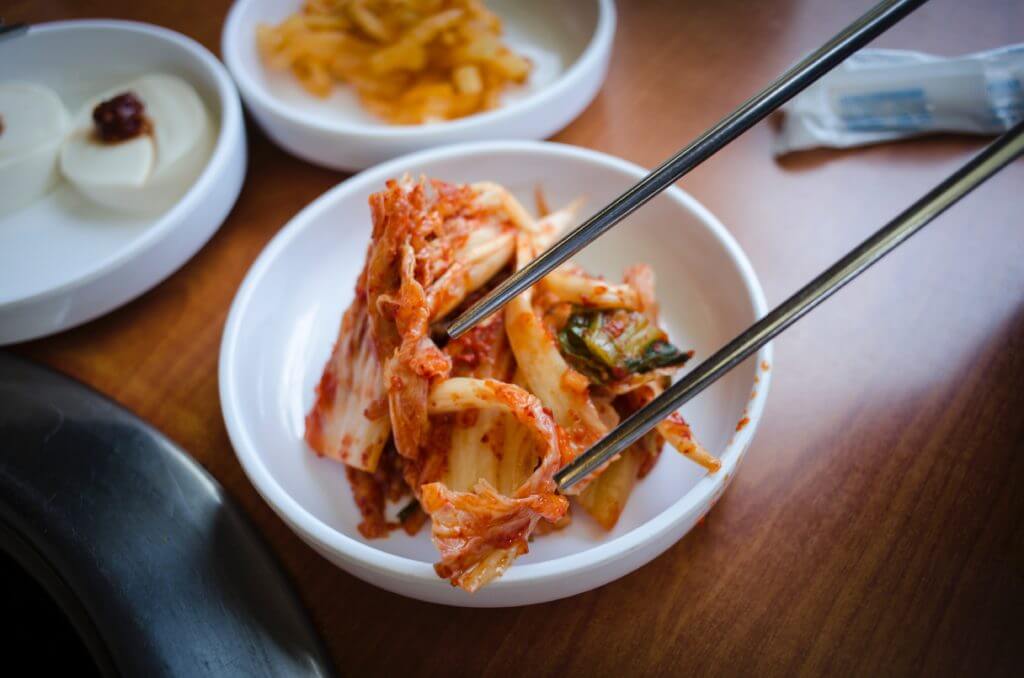
5. Miso
What to love about miso: vitamins, minerals, probiotics!
“Miso is an intensely flavored paste made from fermented barley, rice or soybeans. It’s often used to enhance the flavor of such foods as: soups, salad dressings, marinades. Miso contains probiotics, which are good for your gut health. Be mindful of how much you’re adding to recipes – a little goes a long way and also keeps your sodium intake on the sensible side,” U.S. News writes.
According to Nutrition Stripped, “Miso boasts an impressive nutrient profile, it’s brimming with vitamins and minerals like manganese, vitamin K, copper, and zinc. Keep in mind that it’s also high in sodium, so keep consumption in moderation and pair it with plenty of other fermented foods for the best results.”
Ready to try fermented foods? Already a fan of them? Tell us about it in the comments!
You might also be interested in:
- Best Dairy-Free Cheese
- Best Gluten-Free Snacks
- Healthiest Meats For Your Diet
- Best Green Teas To Boost Your Health
- Best Fruit For Weight Loss
Sources:
- Dr. Axe
- ZOE
- Women’s Health
- Mindbodygreen
- Real Simple
- Eating Well
- Trifecta Nutrition
- Rachel Graham
- U.S. News
- Nutrition Stripped
Note: This article was not paid for nor sponsored. StudyFinds is not connected to nor partnered with any of the brands mentioned and receives no compensation for its recommendations. This post may contain affiliate links. As an Amazon Associate we earn from qualifying purchases.
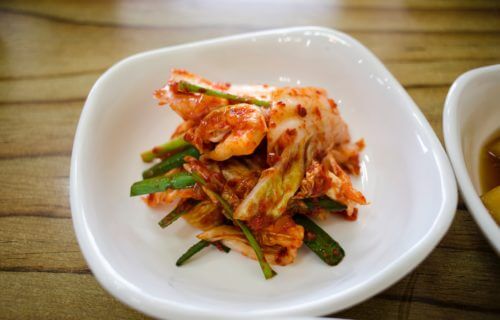
Why do you put Chinese leaves in Kimchi? It put Korean Cabbage. Also, Kimchi contains more than what you put on the ingredients. Need to put proper explanations. The process of making Sauerkraut and Kimchi is very different too. Don’t refer to each